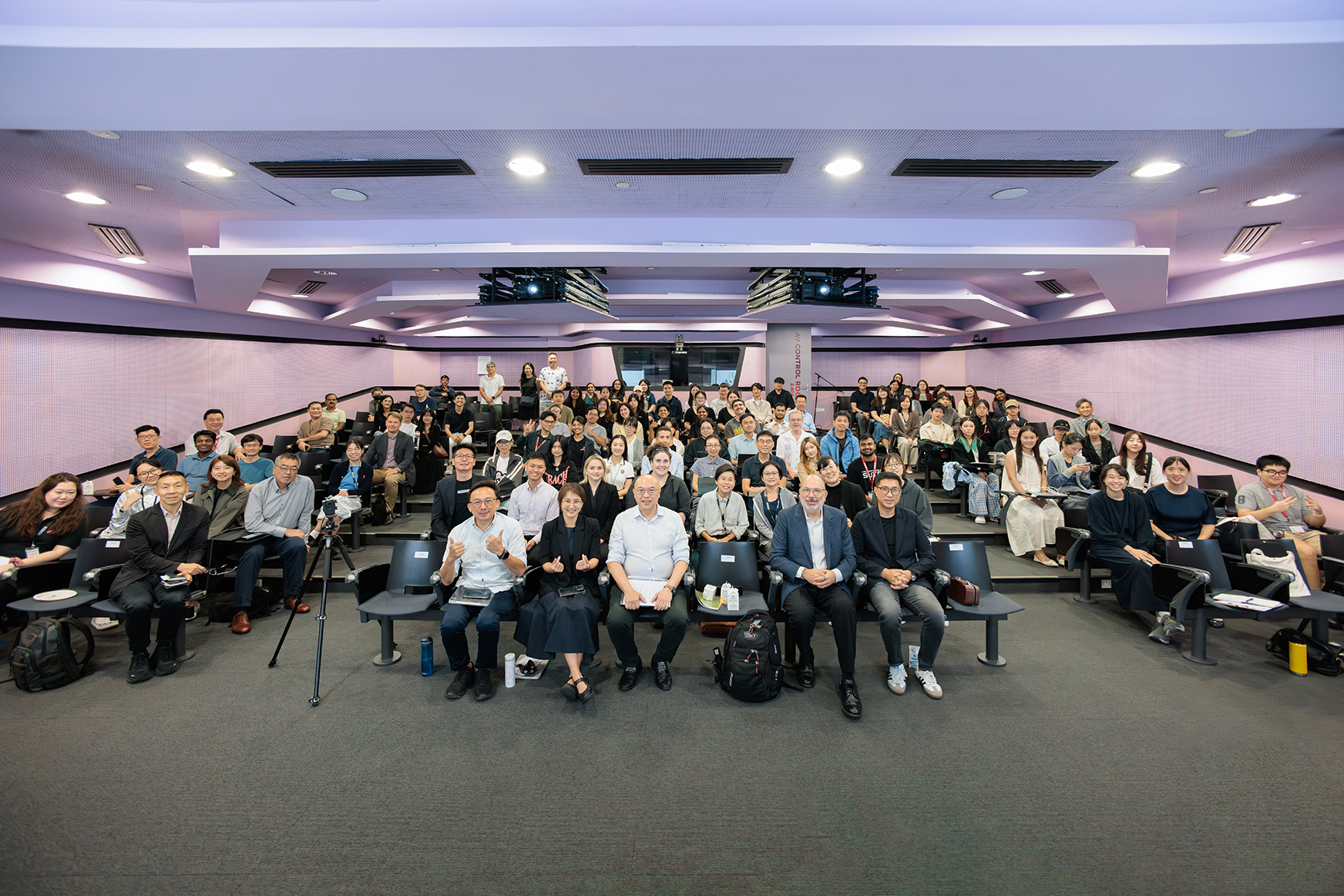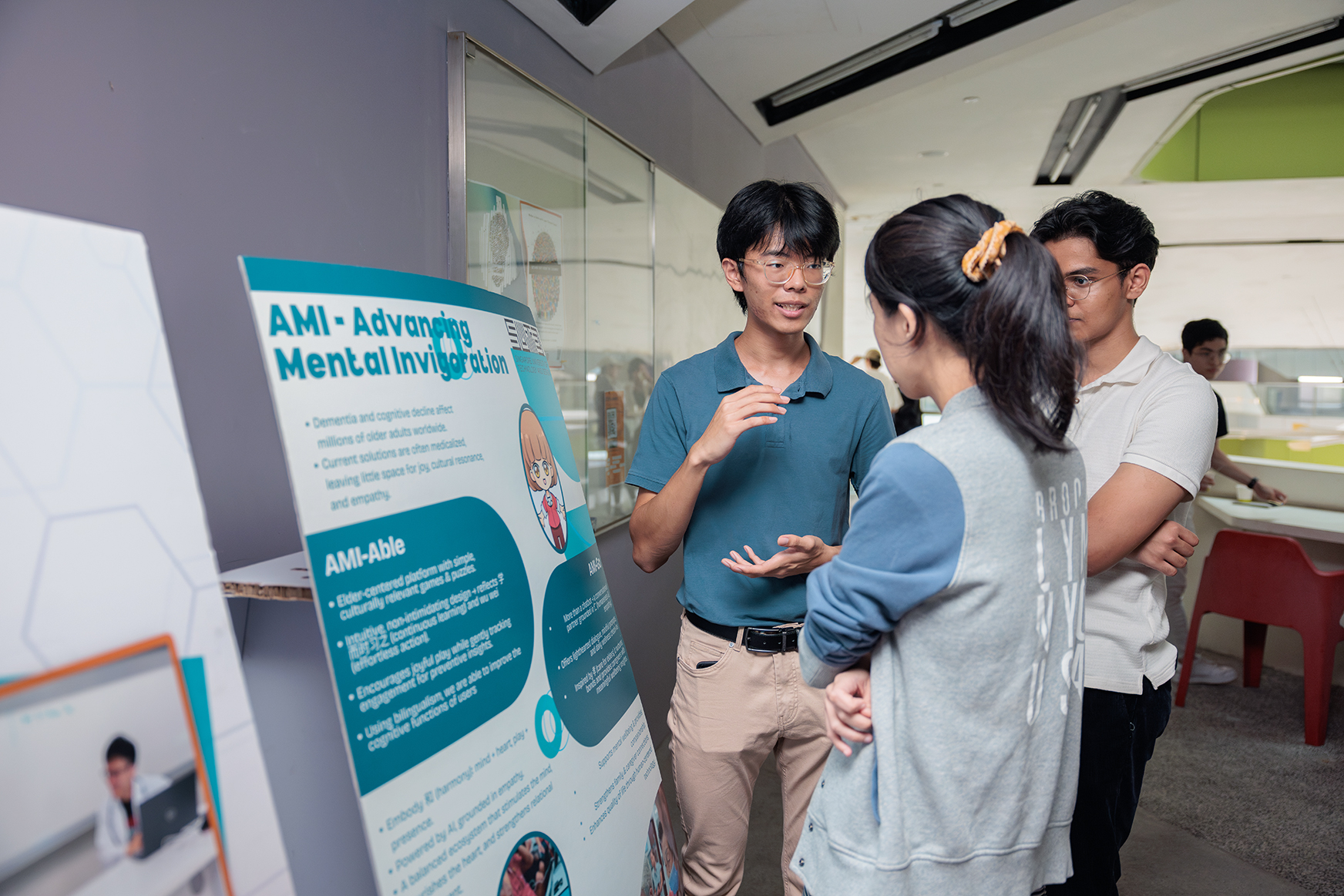Futures by Design: Human-Centred AI and Transformative Possibilities – International Foresight Conference 2025
Futures by Design: Human-Centred AI and Transformative Possibilities – International Foresight Conference 2025
Exploring how AI and design can co-evolve for a more humane future
Co-organised by HASS and DesignZ, SUTD hosted the International Foresight Conference 2025 – Futures by Design: Human-Centred AI and Transformative Possibilities on 3-4 October 2025, bringing together global educators, researchers, and innovators to explore how artificial intelligence and design can shape a more creative, ethical and inclusive world.
Designing for human values
In her opening remarks, Professor Yow Wei Quin, Head of Humanities, Arts and Social Sciences Cluster, reaffirmed SUTD’s position as the world’s first university in Design·AI, emphasising the importance of keeping people, not machines, at the centre of innovation.
“Humans are the foundations of intelligent systems,” she said, “creativity, empathy, and cultural wisdom are not optional extras – we are the grounding of technology.”
Morning of human-centred vision
The morning keynote sessions set the tone for deep, human-focused inquiry. Professor Chee Yeow Meng, SUTD Provost, Chief Academic & Innovation Officer, explored the evolution of human skills in the age of AI, highlighting that while machines excel at processing information and performing operations, humans remain crucial for wisdom, ethical judgment and creativity. He stressed the need for education to adapt to the age of AI, focusing on developing human skills that machines cannot replicate.
Professor James Landay, Denning Co-Director (Acting) of Stanford Institute for Human-Centered AI, highlighted that “AI for good is not enough.” Instead, he called for AI that is designed at the user, community and society levels to increase the chance of positive impact. Ultimately, the future of AI depends on open, collaborative and interdisciplinary research while keeping human needs at the core.
The third keynote, delivered by Professor Yang Dongjiang, Vice Dean of the Academy of Arts & Design, Tsinghua University, explored The Future Ecology of Design Education. He shared how interdisciplinary programmes, connecting design, engineering and the humanities are preparing students for an AI-shaped world.
Panels on design, AI and care
In the afternoon, two lively panels brought together diverse voices from Tokyo University of Science, University of California San Diego, Communication University of China, Tsinghua University, University of Leeds, IIT Jodhpur, Singapore University of Social Sciences alongside SUTD.
In first panel, Design + AI in the Future of Education and Industry, speakers discussed how to balance productivity with creativity, and how different cultures approach AI adoption, from rapid integration to cautious reflection. Despite varied perspectives, one consensus emerged: AI must remain a tool for creative empowerment, not a substitute for human imagination.
The second, Ethics of Care in the Age of AI, panel emphasised that understanding AI requires looking beyond technical specifications to the human relationships, cultural contexts, and power dynamics that shape technological development. The session urged for inclusive, interdisciplinary dialogue to ensure that AI development remains grounded in care and community.

Human-centred AI showcase
Attendees also explored a poster showcase, featuring projects that use AI guided by humanist values to support creativity, care, and inclusivity – from healthcare and learning to memory and play.

Designing human futures
The 2-day conference concluded with a hands-on Future Design Workshop on 4 October, co-led by Tsinghua University and the Lu Xun Academy of Fine Arts, where participants envisioned futures that fuse technology with empathy and imagination.

By anchoring innovation in ethics, culture, and care, SUTD continues to lead the conversation on how design and AI can co-evolve for a more humane and hopeful future.
Conference recordings are available upon request. If you would like access to the recordings, please email to hass@sutd.edu.sg
